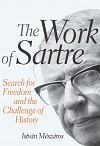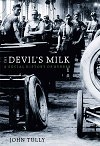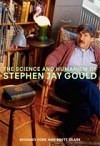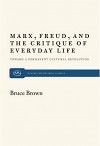Philosophy
The investigation of the dialectical relationship between structure and history is essential for a proper understanding of the nature and the defining characteristics of any social formation in which sustainable solutions are being sought to the encountered problems. This is particularly important in the case of capital’s social formation, with its inexorable tendency toward an all-embracing, structurally embedded determination of all aspects of societal reproduction and the—feasible for the first time ever—global domination implicit in that form of development. It is therefore by no means accidental that, in the interest of the required structural change, Marx had to focus critical attention on the concept of social structure, in the historical period of crises and revolutionary explosions of the 1840s when he articulated his own—radically new—conception of history. | more…
How is it possible that a person living in a water-rich region uses more water by flushing the toilet than a person in a water-scarce region has available for drinking, food-preparation, hygiene, and cleaning—for a whole day? How is it possible that a woman living in a water-rich region only needs to open the tap to get enough water for herself and her family, while a woman in a water-scarce region has to…walk for miles and miles to get far less water of much worse quality? Why is that so? Is it bad fortune? Unfair? Destiny? Undeserved? Is it unjust? It is all these, but also much more. Water is the essence of life. It is the precondition of life.… This article has two parts. The first deals with dominant positions concerning water: the neoliberal agenda, consequences of water privatization, and the UN stance. The second part looks at what is missing in this picture and ignored by the dominant perspectives—namely, global inequalities and gender discrimination. | more…
Hester Eisenstein, Feminism Seduced: How Global Elites Use Women’s Labor and Ideas to Exploit the World (Boulder, CO: Paradigm Publishers, 2010), 272 pages, $26.95, paperback.
Feminism Seduced, written for a general audience, presents a powerful, historically grounded critique of liberal feminism. Drawing on three decades of writing by socialist/Marxist feminists and women-of-color feminists, Eisenstein weaves a compelling account of how the central ideas of “hegemonic feminism” have legitimized the corporate capitalist assault on the working class in the United States and on small farmers and workers, both urban and rural, in the global South.… However, when Eisenstein moves from critique to offering an alternative strategy, she only recycles dualisms that have, as she acknowledges, bedeviled the women’s movement for well over one hundred years. | more…
Ariel Salleh, ed., Eco-Sufficiency and Global Justice: Women Write Political Ecology (New York: Pluto Press, 2009), 324 pages, $34.00, paperback.
In 2001, Wilma Dunaway wrote that the “tentacles of the world-system are entwined around the bodies of women.” Yet her literary analysis revealed a profound silence about the role of women in reproductive labor, subsistence households, and commodity chain analysis. Dunaway characterized this omission as, “the greatest intellectual and political blunder” in her field.…Nearly ten years later, Ariel Salleh has answered this unspoken call with the resounding voices of seventeen feminist scholars who address transdisciplinary issues of global political ecology. | more…
Margaret Randall, To Change the World: My Years in Cuba (Piscataway, NJ: Rutgers University Press, 2009), 256 pages, $24.95, paperback.
Margaret Randall has always been too much of a feminist for the socialists and too much of a socialist for the feminists. She is one of the foremost oral historians of recent revolutionary history and, more specifically, of the history of women in revolutions. Yet her work has been consistently undervalued. Her memoir…is a rare double opportunity: an intimate look at the Cuban Revolution from 1969 to 1980, and a fascinating portrait of the development of a historian, poet, and political thinker. | more…
One of the main accomplishments of the Israeli government’s bombing and invasion of the Gaza Strip last winter was to inspire new vitality within leftist and peace groups in solidarity with the Palestinian struggle for justice and liberation. This wave of activity has continued after the supposed ceasefire, with demonstrations and direct actions from New York to Los Angeles, Paris, Jaffa, and Tel Aviv. Most noteworthy has been a coming out of sorts of an increasingly large and vocal segment of the Jewish world that is not only opposed to the Israeli government’s wars and military occupations, but critical of Zionism itself. | more…
Who could have imagined the 2008 presidential campaign?
Commentators, media people, and especially politicians fell all over themselves proclaiming that the 2008 election had, “nothing at all to do with race.” And yet every event, every speech and comment, every debate and appearance had race written all over it. Stephen Colbert, the brilliant satirist, hit it on the head when he asked a Republican operative, “How many euphemisms have you come up with so far so that you won’t have to use the word ‘Black?’” Everyone laughed good-naturedly. | more…

This landmark book, first published in 1979, met acclaim as a doubly important work of radical philosophy. Its subject, Jean-Paul Sartre, was among the twentieth century’s most controversial and influential philosophers; its author, István Mészáros, was himself establishing a reputation for profound contributions to the Marxian tradition, which would continue into the next century. In this completely updated and expanded volume, Mészáros examines the manifold aspects of Sartre’s legacy—as novelist, playwright, philosopher, and political actor—and in so doing casts light upon the entire oeuvre, situating it within the historical and social context of Sartre’s time. | more…

José Carlos Mariátegui is one of Latin America’s most profound but overlooked thinkers. A self-taught journalist, social scientist, and activist from Peru, he was the first to emphasize that those fighting for the revolutionary transformation of society must adapt classical Marxist theory to the particular conditions of Latin American. He also stressed that indigenous peoples must take an active, if not leading, role in any revolutionary struggle. | more…

Capital, as Marx once wrote, comes into the world “dripping from head to foot, from every pore, with blood and dirt.” He might well have been describing the long, grim history of rubber. From the early stages of primitive accumulation to the heights of the industrial revolution and beyond, rubber is one of a handful of commodities that has played a crucial role in shaping the modern world, and yet, as John Tully shows in this remarkable book, laboring people around the globe have every reason to regard it as “the devil’s milk.” All the advancements made possible by rubber—industrial machinery, telegraph technology, medical equipment, countless consumer goods—have occurred against a backdrop of seemingly endless exploitation, conquest, slavery, and war. But Tully is quick to remind us that the vast terrain of rubber production has always been a site of struggle, and that the oppressed who toil closest to “the devil’s milk” in all its forms have never accepted their immiseration without a fight. | more…

Stephen Jay Gould was not only a leading paleontologist and evolutionary theorist, he was also a humanist with an enduring interest in the history and philosophy of science. The extraordinary range of Gould’s work was underpinned by a richly nuanced and deeply insightful worldview. Richard York and Brett Clark engage Gould’s science and humanism to illustrate and develop the intellectual power of Gould’s worldview, particularly with regard to the philosophy of science. They demonstrate how the Gouldian perspective sheds light on many of the key debates occurring not only in the natural sciences, but in the social sciences as well. They engage the themes that unified Gould’s work and drove his inquires throughout his intellectual career, such as the nature of history, both natural and social, particularly the profound importance of contingency and the uneven tempo of change. They also assess Gould’s views on structuralism, highlighting the importance of the dialectical interaction of structural forces with everyday demands for function, and his views on the hierarchical ordering of causal forces, with some forces operating at large scales and/or over long spans of time, while others are operating on small scales and/or occur frequently or rapidly. | more…

The theory and practice of revolutionary social transformation, Bruce Brown argues, cannot rest content with the exclusive emphasis of traditional Marxism on world-historic processes and the struggle of the working classes for their collective emancipation. He views the experience both of the backsliding of revolution in the Soviet Union and Eastern Europe, and of the manipulative integration of the population of the West into consumer capitalism, as seen at the turning point years of the early 1970s. Brown argues that Marxism needs to rediscover the specifically subjective, psychological dimensions of the revolutionary process in their relation to the objective patterns in history. | more…




